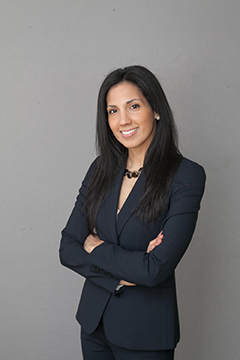
Arivee Vargas
1. What motivated you to apply for the Romero Scholarship?
Since my freshman year, I've attended the Romero Scholarship Ceremony as a member of OLAA and have watched other Latino student activists, whom I look up to, receive this amazing honor. Not only was I consistently inspired by these students, but I also felt a connection with Romero and his service. Knowing this impact on me, peer mentors encouraged me to apply.
2. What was the most memorable question from the interview and how did you respond?
The first interview question asked what I found to be the greatest struggle during my time serving the Latino Community. Although I tried to collect myself and remain calm, tears came to my eyes. I got emotional because this struggle consumes how I live everyday. I explained that I want to play a role in social change, but it is discouraging to often hear that social change is not possible. I will never think that society should just be accepted with all of its injustice. It is especially hurtful when Latinos display apathy towards the problems in our communities instead of becoming agents of social change. I didn't know I would get so emotional during the interview, but this first question proved me wrong, completely.
3. How did you feel when you heard your name called as the award winner?
I was extremely overwhelmed and shocked, because I just could not believe it. It is such an incredible honor. It still hasn't set in.
4. What do you feel is your biggest responsibility as the Romero Scholarship recipient of 2004?
Now more than ever, I feel a responsibility to advocate for the Latino community. It is difficult to articulate exactly how I feel, but I know I must continue to be pro-active in ending social injustice far beyond my college years. Like Romero, I have to keep standing up for the disenfranchised and give them a voice. It is a duty, a calling."
5. What would you say to students who are thinking of applying next year?
The application process itself allows you time for reflection. It is an intense process, but one that opens you up to uncovering the core of who you are as a human being and a child of God. I encourage Latinos to apply and be open to this process of reflection!

